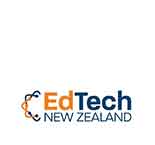Susana Tomaz | STEAM Coordinator Westlake Girls High School | Across School Lead – Pupuke Kāhui Ako at Ministry of Education of New Zealand
March 2023 has been an exciting month for various reasons. Two significant events that have marked this month are the celebration of International Women’s Day and the release of ChatGPT 4.
These two events remind us how the pace of technological change continues to accelerate and highlights the importance of the role of innovative technology in harnessing technology to promote equality so no one is left behind. This year’s theme for International Women’s Day reinforces the importance of creating a more inclusive world for all. The celebration of International Women’s Day is especially relevant as we continue to witness the struggles and achievements of women. The ongoing circumstances around girls accessing education in Iran is a strong reminder of that.
In this month’s blog I would like to reflect on factors impacting diversity and equality in technology, innovation and STEM educational pipelines, and share some student voice.
“I think there is a group of girls who still believe STEM is male-dominated, too hard to get into and it’s only for smart people. They end up not giving it a go because they think that they will not be successful.” Student voice
Despite the growing demand for STEM skills in New Zealand, and around the world, there is still a significant underrepresentation of girls as well as Māori and Pasifika in STEM fields.
Research has found that the gap starts to widen as early as Year 3, suggesting that interventions to increase access to technologies should start at primary school.
Early exposure to technology, innovation and STEM is key to developing interest and skills in these areas. This can be achieved through initiatives such as extracurricular activities like coding, maker spaces, and robotics clubs; but also in the classroom with the integration of edtech into the curriculum to enhance teaching and learning.
Creating opportunities for exposure of students to role models in the field of STEM is imperative in tackling the underrepresentation of women, Māori and Pasifika in the STEM pipeline, which has been a persistent problem that can discourage these learners from pursuing these careers.
“There has always been this invisible barrier that makes me feel like I’m not smart enough or capable because when many people describe they use technology Jargon. There is also a lack of opportunity, it’s hard to become interested in technology when you have never been exposed to it.” Student voice
Accessibility of technology is another important factor. There is urgency in closing the digital divide in our schools and ensuring that every learner has access to a device and internet at home. However, access is not sufficient. Having support networks at home, at school and in the community that incentivises, and monitors the use of technology, has the potential of improving literacy and digital skills, especially for girls. Consequently, solving the female under-representation in STEM becomes a community-centred effort that requires the support of schools, whanau and industry. Creating better connections between industry and education is pivotal to improving diversity and pathways into STEM careers.
This month, we had the opportunity to provide a group of students with exposure to role models in the field of technology, innovation and STEM. Below is what they took away from it, which reinforces how powerful engagement opportunities can be in shifting learners’ mindsets around technology, innovation and STEM.
“We were offered the opportunity to learn about the varied pathways available and how the technology industry can offer so much. All of us came away feeling really inspired about pursuing technology and breaking barriers surrounding the involvement of women and indigenous in the sector.”
“I think for most of us, the event opened our minds to understanding more about the opportunities in the tech industry. Connecting with these people really inspired me to think about potential career options in tech.”






